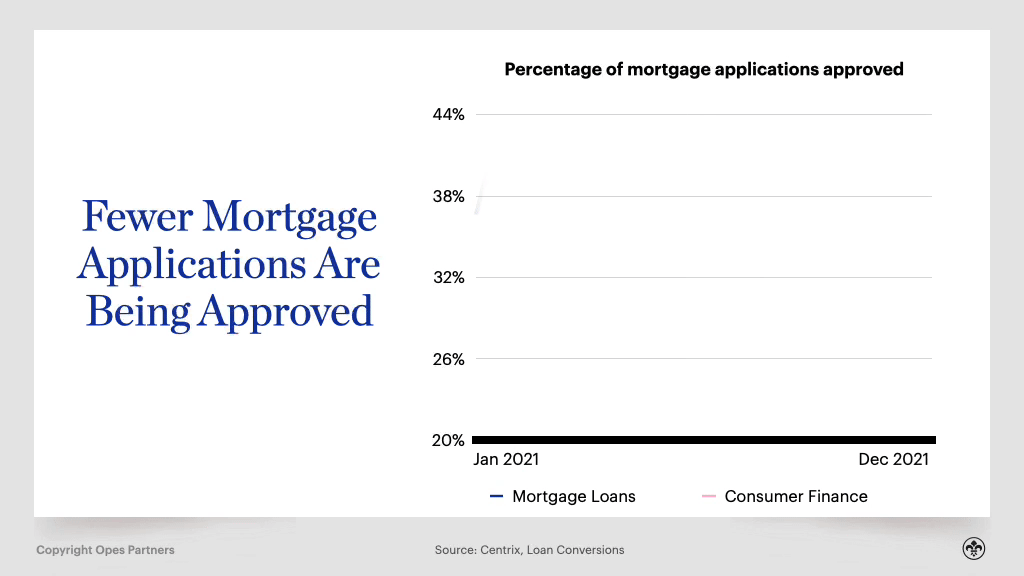Lending rule changes a prelude to bigger overhaul of CCCFA
The government has announced tweaks to the much-maligned law, but isn't scrapping the lending affordability regulations – at least, not yet.
Mōrena, and welcome to The Bulletin for Monday, April 22.
In today’s edition: Ports of Auckland boss on trial over stevedore death; ‘Fast-track’ list prompts outcry from environmentalists; Otago University alumni threatened to pull donations over Grant Robertson appointment. But first, the consumer lending regulations have been changed so many times they’re hardly recognisable as the same ones passed by Labour in 2021. According to the minister in charge, there are even more changes to come.
The first stage of a lending-rules overhaul
Many borrowers will find it easier to access credit as a result of changes to the Credit Contracts and Consumer Finance Act, or CCCFA, announced on Sunday by commerce and consumer affairs minister Andrew Bayly. The new rules, which Bayly had previewed in a speech in late January, are part of a suite of updates he plans to make to the controversial law. For borrowers, the most immediate impact relates to exemptions. Councils are now exempt from the CCCFA, allowing them to administer voluntary targeted rates – to pay back loans for installing insulation or heat pumps, for example – without extra credit checks. Car dealers and other companies whose “primary business is non-financial goods and services” are also exempt. Oversight of the CCCFA is moving from the Commerce Commission to the Financial Markets Authority, and the rules of various financial dispute resolution schemes are to be aligned
A recent history of the CCCFA
While the CCCFA itself is more than 20 years old, it was a 2021 update that brought the act back into the limelight. In response to concerns about loan sharks and other predatory lenders, the Labour government introduced regulations that required lenders to assess the affordability of loans by checking borrowers’ spending habits. Almost immediately, borrowers complained that their everyday spending was being scrutinised to a ridiculous degree, and new lending fell off a cliff. While the rapid slowdown in lending was partly a result of recently tightened loan-to-value rules, the outcry from both borrowers and lenders concerned the government so much that it eased the rules within months. But it wasn’t enough – so in April 2023, then minister Duncan Webb had another go, tweaking the rules to exclude discretionary expenses more explicitly from lenders’ affordability-testing criteria. In August, Webb said he wanted to undertake yet another review of the rules, but Labour’s election loss put paid to his plans.

So what’s happening with affordability checks?
The government has indicated it plans to remove the affordability testing rules entirely – but not quite yet. There was no detailed mention of them in Sunday’s announcement, just an indication that they would be revoked in coming months. The government’s feelings on the rules could not have been clearer, however. Bayly said the “overly arduous checks” had thrown “a bucket of cold ice over banks and financial providers”, while housing minister Chris Bishop said the “ridiculous” rules had put mortgages even further out of reach for first home buyers already coping with high interest rates and rising house prices. Labour’s commerce and consumer affairs spokesperson Arena Williams said loosening the rules would put vulnerable people at risk. “Kiwis can expect less protection from loan sharks and unaffordable debt as a result of today’s announcement,” she said. A number of the changes announced on Sunday, such as the targeted rates exemption, were already in the works under the Labour government.
Banking competition could benefit from rule change
The removal of affordability checks could have an interesting ripple effect across the banking industry. According to last month’s draft report from the Commerce Commission’s retail banking market study, the checks may be contributing to the lack of competition in the sector. Consumers who otherwise would have considered switching banks at the end of their home loan term were likely being deterred by the prospect of new affordability assessments, the commission said. "Our draft recommendation is that the Government consider amending the CCCFA to achieve competitive neutrality between existing home loan providers and potential alternative providers in the context of a consumer refinancing a home loan."
Right now, we need your support more than ever
The Spinoff recently estimated that the number of full-time journalists in New Zealand may have halved since 2018 Census data was published. As the media landscape continues to change, numbers continue to decrease. The Spinoff is not immune to the drastic advertising slowdown impacting the sector. That’s why we’re immensely grateful to our audience for their support. To those who already support us, thank you. If you don’t and are able, we’d be very grateful if you’d consider becoming a Spinoff member or donating today.
Duncan Greive
Founder
Ports of Auckland boss on trial over stevedore death
The former CEO of Ports of Auckland Limited is on trial in an unprecedented workplace safety prosecution, the Herald’s Lane Nichols reports. Tony Gibson is accused of failing to ensure frontline workers were kept safe, leading to stevedore Pala’amo Kalati being fatally crushed by a container in 2020. “The prosecution has been brought under tough new health and safety laws introduced following the Pike River mine disaster aimed at holding senior company officers to account for exposing workers to risk of serious injury or death,” Nichols writes. Maritime NZ prosecutors say there were “systematic defencies” in workplace safety standards at the Auckland port, a situation Gibson should have been well aware of following four previous health and safety prosecutions during his decade-long tenure as chief exeuctive. Gibson’s defence lawyer John Billington, KC says he can’t be held liable for failures of individual systems and staff over which he had no direct control. “He was but one of 650 employees at the time, albeit the most senior. The conduct of POAL is not attributable to Mr Gibson.”
‘Fast-track’ list prompts outcry from environmentalists
The government released a list of companies it has invited to apply for fast-track consents late on Friday – just a few hours before public submissions on the bill closed. The Fast-Track Approvals Bill has prompted an outcry from conservation bodies who say the fast-track process will override essential environmental protections. Infrastructure minister Chris Bishop says the list was released "in the interests of transparency” following a number of Official Information Act requests, but Forest & Bird believes the release only happened because it had complained to the Ombudsman after its own OIA request was rejected. Greenpeace says the list of companies includes what it calls "the most environmentally destructive industries in New Zealand", singling out "environmental destroyers" dairy giant Fonterra, commercial fishing company Talley's and Trans-Tasman Resources, which has been bidding to mine off the South Taranaki coast for years, reports RNZ. Many of the companies on the list have had previous applications rejected, according to the protest group Communities Against the Fast-Track (CAFT). Meanwhile Labour says the government is opening itself up to accusations of bias, pointing to at least two businesses on the list that have donated to National.
Click and Collect
Grant Robertson’s appointment as Otago University vice-chancellor led to some alumni threatening to pull donations, an OIA has revealed.
Christchurch’s Catholic cathedral is to be built on the old site, reversing established plans for a central city riverfront location.
The wait time for new passports is now up to eight weeks as a result of system upgrades and higher demand.
The CEO of Warner Brothers Discovery, parent company of Newshub, received $83.8 million in compensation last year, a 26% increase from 2022.
The passing of a long-delayed US$60 billion aid bill is set to give Ukraine a vital life-line in its defence against Russia’s invasion.
Feeling clever? Click here to play 1Q, Aotearoa’s newest, shortest daily quiz.
There’s no need to make emergency housing harder. It’s hard enough already – trust me, I know, writes Siobhan Rosenthal. Councillor and public transport advocate Thomas Nash makes a list of transport projects Wellington could actually deliver in the next 10-15 years. Josh Thomson shares his worst 7 Days moment. It’s embarrassing that Wellington doesn’t have an ice rink, says Fox Meyer. Our laws are leaving many veterans who served after 1974 out in the cold – and I'm one of them, writes James Graham. Three writerly Emmas discuss the name that unites them. The Spinoff ranks all 28 New Zealand road tunnels from worst to best.
The Bulletin is looking for a sponsor
Expertly curated, The Bulletin delivers essential news and diverse perspectives from Aotearoa and beyond to business leaders, politicians, and decision-makers nationwide. Contact commercial@thespinoff.co.nz to learn more.
Got some feedback about The Bulletin, or anything in the news? Get in touch with me at thebulletin@thespinoff.co.nz.
If you liked what you read today, share The Bulletin with friends, family and colleagues.










